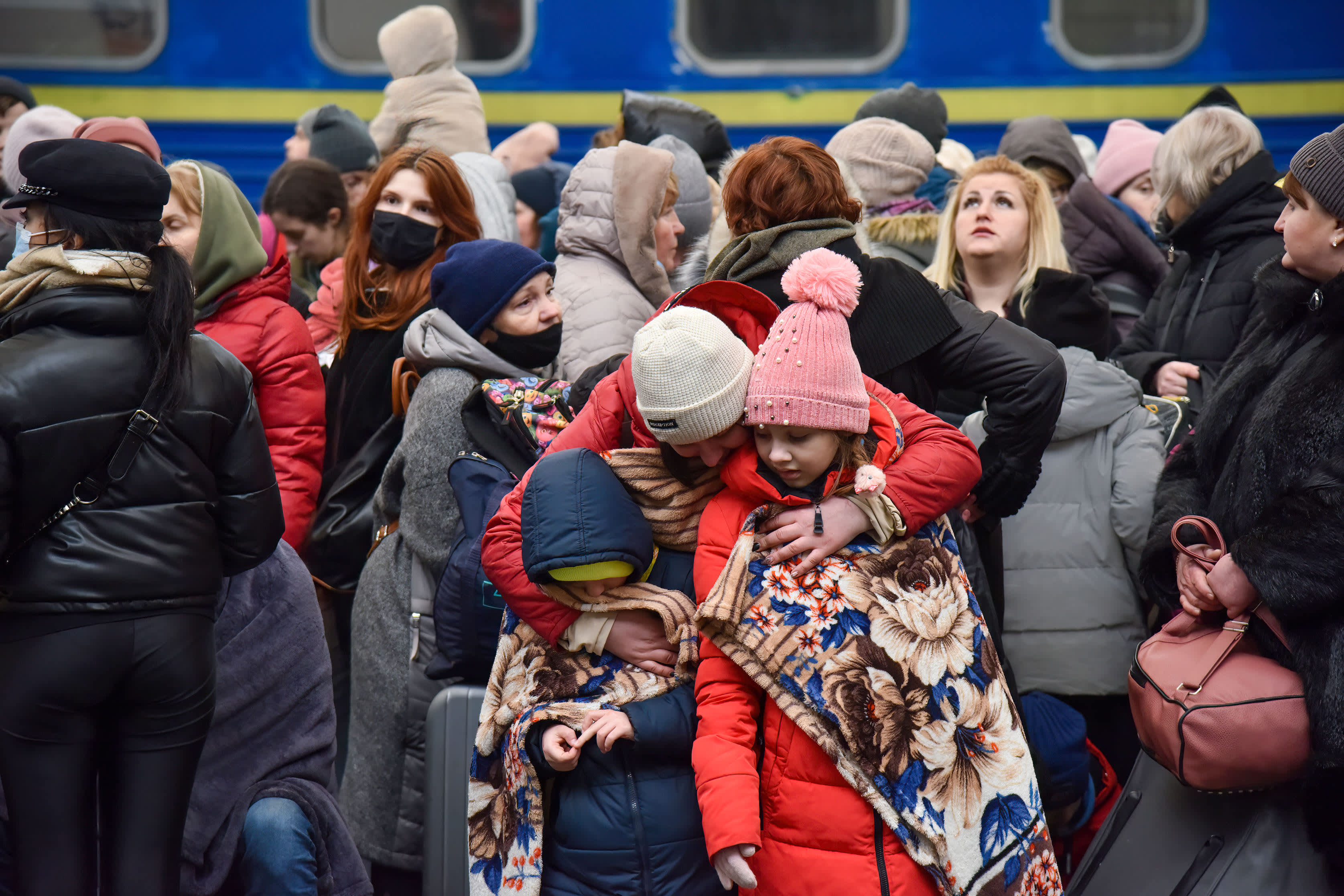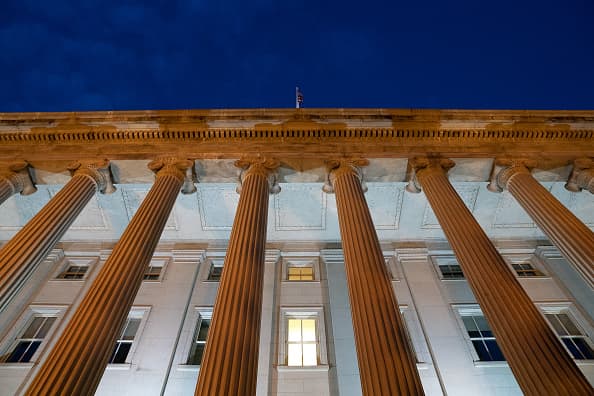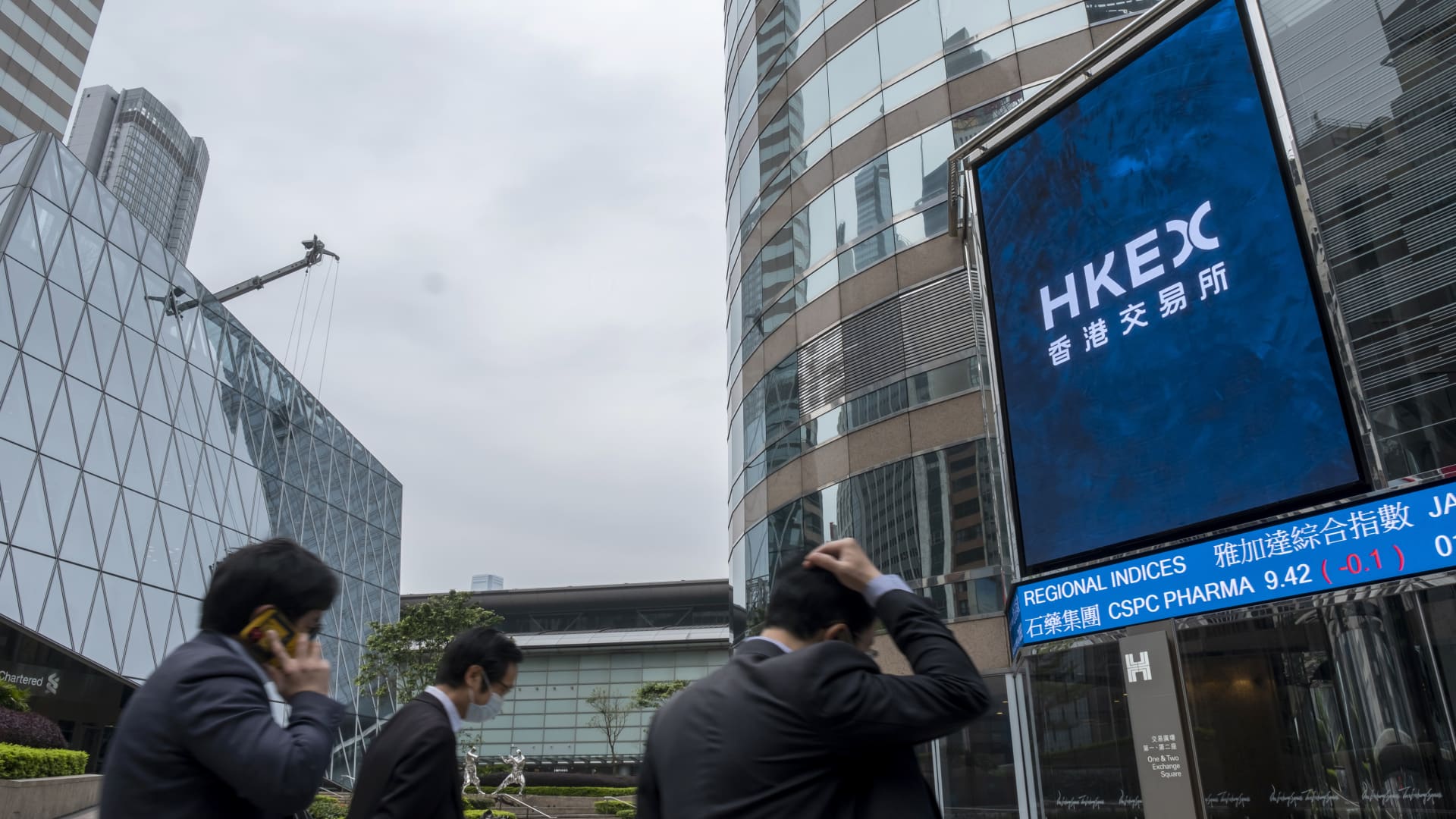Trump address to Black journalist convention prompts co-chair Karen Attiah to quit
Republican presidential nominee Donald Trump is set to address the National Association of Black Journalists convention in Chicago on Wednesday.

Washington Post Editor Karen Attiah leads a discussion on Saudi hacking techniques at the Oslo Freedom Forum 2019 on May 28, 2019 in Oslo, Norway.
Julia Reinhart | Getty Images
The co-chair of the annual National Association of Black Journalists convention stepped down Tuesday in apparent reaction to that group's decision to have former President Donald Trump speak at its convention and career fair in Chicago on Wednesday, among other factors.
"To the journalists interviewing Trump, I wish them the best of luck," NABJ24 convention co-chair Karen Attiah wrote in a social media post announcing her decision to resign her position. "For everyone else, I'm looking forward to meeting and reconnecting with all of you in the Windy City."
"While my decision was influenced by a variety of factors, I was not involved or consulted with in any way with the decision to platform Trump in such a format," wrote Attiah, a columnist for The Washington Post who writes about international affairs, culture and human rights issues.
NABJ on Monday announced that the Republican presidential nominee Trump would "participate in a conversation with journalists" at the convention before attendees, sparking controversy among some members of the group.
The group said the event with Trump will be moderated by Rachel Scott, the senior congressional correspondent for ABC News, Fox News' Harris Faulkner, anchor of The Faulkner Focus and co-host of Outnumbered, and Semafor politics reporter Kadia Goba.
Attiah's announcement Tuesday came several hours before a source familiar with Vice President Kamala Harris's plans said that Harris, who is the de facto Democratic presidential nominee, would not attend the NABJ convention because of conflicts with her schedule.
The NABJ team rejected a request from Harris' team to to a "fireside chat" virtually at the convention, according to the person, who spoke with NBC News.
Harris's father is Black, and her mother was born in India. If elected president, she would be the first woman and the first South Asian person elected president.
Founded in 1975, NABJ is the largest association of journalists of color in the United States. Over the years it has hosted speakers who included then-presidents Barack Obama, George W. Bush and Bill Clinton, as well as former Secretary of State Hillary Clinton.
CNBC has requested comment from Attiah and from NABJ, as well as from a spokesman for Trump's presidential campaign about Attiah's resignation as co-chair of the convention.
NABJ President Ken Lemon, in a video tweeted out Tuesday, said the invitation to Trump by his group is "absolutely not an endorsement" of the Republican nominee.
"Every year, every presidential election, we invited the presidential candidates to come," Lemon said. "We invited both of them, we got a 'yes' from one of them, we'd love to get a 'yes' from Kamala."
"This is an opportunity for us to vet the candidates, on our ground," Lemon said.
Tia Mitchell, the Washington correspondent for The Atlanta Journal-Constitution, in her own post on X responded to the controversy over Trump's appearance, saying she helped arrange the event as a chair member of NABJ's political task force.
"I helped make this call. And it's in line with invitations NABJ has sent to every presidential candidate for decades," wrote Mitchell in that X post. "But continue to go off on your feed. I'll continue to work to create opportunities for journalists to interview the potential next President."
Mitchell's post was only visible to users who she had given access to.
April Ryan, the White House correspondent for The Grio who was NABJ's 2017 Journalist of the Year, blasted the invitation to Trump.
"The reports of attacks on Black women White House correspondents by the then president of the United States are not myth or conjecture, but fact," Ryan wrote in a post on X on Tuesday.
"To have a presumed orchestrated session with the former president is an affront to what this organization stands for and a slap in the face to the Black women journalists (NABJ journalists of the year) who had to protect themselves from the wrath of this Republican presidential nominee who is promoting an authoritarian agenda that plans to destroy this nation and her democracy with his Project 2025."
During his presidency, Trump was criticized for making racist remarks when he referred to Haiti and African nations as "s---hole countries" during a meeting with senators at the White House in 2018.
Trump's nephew Fred Trump III recounted hearing Donald Trump twice using the n-word, in his newly released memoir, after finding that his convertible had been slashed while parked. Trump's campaign said Fred Trump's claim was "total fake news of the highest order."
Republican presidential nominee and former U.S. President Donald Trump speaks as he campaigns in Charlotte, North Carolina, U.S. July 24, 2024.
Marco Bello | Reuters
Donald Trump and his father Fred Trump were sued by the Department of Justice in 1973 for allegedly discriminating against Black would-be tenants in their New York housing complexes because of their race.
Donald Trump has noted that he and his father settled the case two years later "with no admission of guilt."
Attiah was named NABJ's Journalist of the Year in 2019.
The same year, she won a special George Polk Award, one of the most prestigious prizes in American journalism, along with fellow Post columnist David Ignatius, for their writings about the murder of Post columnist Jamal Khashoggi in the Saudi Arabian consulate in Istanbul, Turkey in November 2018.
Read more CNBC politics coverage
Attiah, whose parents are from the African nations of Ghana and Nigeria, had recruited Khashoggi to The Post and hired him.
Trump, who was president at the time of Khashoggi's murder, rejected the conclusions by the U.S. Central Intelligence Agency that the killing was done on the orders of Saudi Crown Prince Mohammed bin Salman.
The State Department in March 2020, while Trump remained in the White House, blamed Saudi Arabian government agents for the murder.

 Aliver
Aliver 































